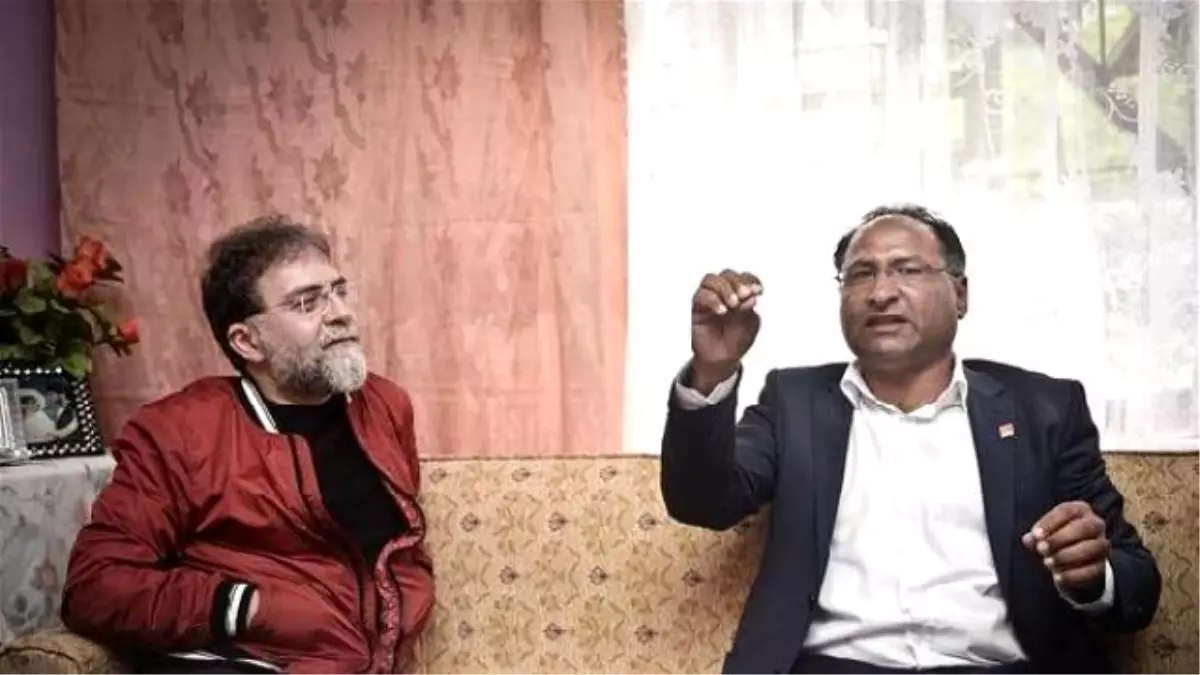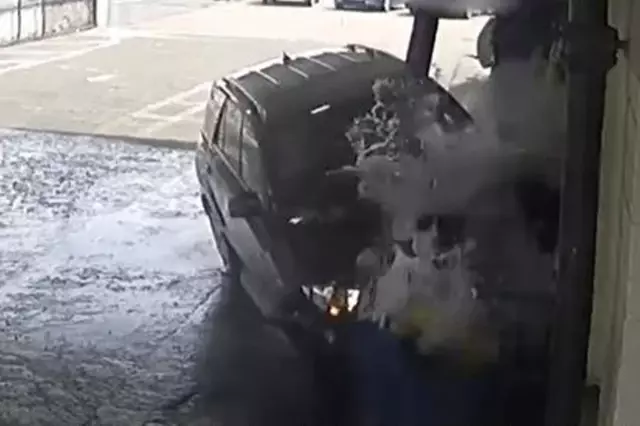Intervıew: Politician Vows To Be First Roma Deputy İn Turkey

Özcan Purçu, who is expected to become the first ever Roma politician in the Turkish Parliament, has said he opted to be nominated from the main opposition Republican People's Party (CHP) as the ruling Justice and Development Party's (AKP) "Roma initiative" ultimately failed. "The government is not sincere," the 37-year-old politician from the western province of İzmir said in an interview with daily Hürriyet. Purçu was also nominated by the CHP in the 2011 general elections, but did not manage to get elected as he was the 11th candidate in the second district list. The higher rank he has been nominated for in upcoming June 7 elections means that his election is almost guaranteed, considering the local voting base and recent polls. "For the first time in 92 years, a Roma politician will enter the Turkish Grand National Assembly as a deputy" he told Hürriyet in his home in İzmir's Gültepe neighborhood, where many Roma reside.
Özcan Purçu, who is expected to become the first ever Roma politician in the Turkish Parliament, has said he opted to be nominated from the main opposition Republican People's Party (CHP) as the ruling Justice and Development Party's (AKP) "Roma initiative" ultimately failed.
"The government is not sincere," the 37-year-old politician from the western province of İzmir said in an interview with daily Hürriyet.
Purçu was also nominated by the CHP in the 2011 general elections, but did not manage to get elected as he was the 11th candidate in the second district list.
The higher rank he has been nominated for in upcoming June 7 elections means that his election is almost guaranteed, considering the local voting base and recent polls.
"For the first time in 92 years, a Roma politician will enter the Turkish Grand National Assembly as a deputy" he told Hürriyet in his home in İzmir's Gültepe neighborhood, where many Roma reside.
"I will make the rostrum of parliament a rostrum for the Roma," he said, vowing to solve what he listed as the "five major problems" of his community: Education, unemployment, accommodation, discrimination and prejudice.
You are a candidate from the CHP. Are you a "white Roma," as in a "white Turk"?
Not even close. My mother is a peddler; my father is basket weaver. They raised all their children through this hard work. My father is still weaving baskets. I was born in a tent and raised in a tent, a nylon one.
They say Roma do not care about education. We see in you that there are Roma people who do care about education. Your parents have supported your education. You are a university graduate.
I'm a bit marginal. I was struggling against poverty on the one hand, while on the other hand I rejected the traditional Roma cultural practice of marrying young. They were going to marry me when I was 13, but I wanted to go to school. While I was studying in the tent, they betrothed me in the adjacent tent. They told me to kiss the hand of the girl's father and say, "Kiss his hand, we asked for the girl's hand." Instead, I took his hand and cried, "Do not give your daughter's hand to me."
Where were you born?
In the Söke district in the Aegean province of Aydın.
What is your origin?
We are nomads. Our ancestors hit the road with horse-drawn carriages from Çanakkale. They stopped at villages on the road to sell baskets. Then they arrived in İzmir. Some 50 carriages decided to stay in İzmir. The remaining 30 carriages continued on to Söke.
How did you get involved in school and education?
I saw kids with school uniforms. I wanted to be like them. My father took me to school. I was eight years old but I had no identity card. The principal was angry at my father. When we left his office my father told me, "I will not send you to school." I, in turn, scared my father, by saying, "The principal knows us now; they will come and get you." The next day, he registered me and obtained my identity card. He enrolled me at school on the same day.
Were you subject to discrimination at school?
Nobody would sit beside me in elementary school. In middle school, the teacher made me sit in the very back seat. I would sit there all by myself.
How did all this affect you?
I was more ambitious. I was so good in classes that the teacher who made me sit at the back rewarded me with a fountain pen. I overcame discrimination by working harder.
You later graduated from university.
I am a graduate of Uludağ University's Public Administration Department. My university entrance examination scores were quite high. All Roma children are bright if they are given the opportunity. I could have enrolled at a university in Ankara or Istanbul. But we were living in a tent; my mother was a peddler, going from house to house selling goods to housewives. She would frequently go to Bursa and buy goods to sell. She said, "My son, write down Bursa. At least I will see you when I am there." For this reason, even though my scores were high, instead of Ankara or Istanbul, I opted for Bursa.
After graduating from school, what were you able to achieve?
Nothing.
You could have been a district governor. Did you not take the exams?
My ideal was to be a district governor. I took many exams. I could not pass any of them. I was always eliminated in the verbal exam.
What is the perception of Roma in Turkey?
They say we play our instruments, we dance, and we laugh. It is as if we never have any problems. Are we not human beings? We cannot make a living. We do not have jobs or any other means. We also have sad days. Wider society sees us as always just playing, dancing and laughing. Correct, we laugh and have fun, but only to forget our hunger.
Steps have been taken and are being taken to solve the accommodation problem of the Roma. Urban transformation has been launched. Is this not a solution?
None of the urban transformation projects are done humanely. They are done in a "bloodthirsty" way. Look at Sulukule. What happened there? You took that place from the poor and very poor, you knocked down everything; you built villas and gave them to the rich. You have exiled the poor Roma 50 kilometers away from the city. You took their jobs from them; you destroyed their culture. You took from the poor and you gave to the rich.
What kind of urban transformation do you want?
We want a humane and just urban transformation. Nobody is against urban transformation. Let them demolish and rebuild. However, while doing so, take into account the social transformation. What they are saying at the moment is this: "Your current house is worth 20,000 Turkish Liras. The house I will give to you is worth 700,000 liras. You will pay it in installments." They therefore grab the land [that the Roma live on] downtown for a very cheap price and exile the Roma to houses they have built outside the city and ask for even more money. Is that just?
What do you think about the government's "Roma initiative"?
We started talks with the government in 2009. In 2010, we organized a Roma gathering at the Abdi İpekçi Arena in Istanbul. All Roma who participated in that event cried. Why did they cry? Because they thought their problems would be solved. Later, we saw that all the promises were empty. We were told, "There will be no Roma left living in a tent, in one-room homes or in tin shacks." But none of these promises were kept. Some 50 to 100 houses were given and they were all 50 kilometers outside the city. Now, Prime Minister Ahmet Davutoğlu says he will do some things. Did that occur to them now? They are now in a semi-panic. They have seen that Özcan Purçu has made the wind blow, that's why. They organized another meeting; it did not happen again. Of course it would not happen. They were not sincere.
In which areas do the most exclusion, discrimination and "otherizing" occur?
In access to public services and finding a job. For instance, you can send a job application to a company, but instantly you lose because of your skin color. They immediately understand that you are a Roma child. You cite your address in your CV and it is recognizable.
They do not want to hire the Roma?
Who would want to?
Why would they not?
First, there is distrust and there is prejudice. I'm very sorry, they say, Roma people would steal, walk off with our goods. The society has this mentality. There are bad people and good people in each community. But when the Roma are in question, what comes to mind is theft and shamelessness. This perception has to change.
(PHOTO) - Istanbul









